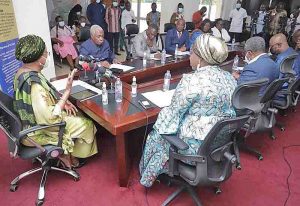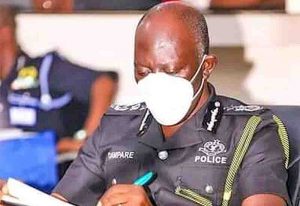The actions of the Speaker of Parliament, Alban S.K. Bagbin, in directing the Marshall to walk out Dr. Kwaku Afriyie, the Member of Parliament for Sefwi-Wiawso, raises important questions regarding the standing orders of the House, the implications of parliamentary precedents, and the broader political context within which such actions occur.
Standing Orders and Parliamentary Procedure
- Order and Decorum: The standing orders emphasize respect and civility among Members of Parliament (MPs). They outline the conduct expected during debates, voting, and exchanges. In this context, the action taken by Speaker Bagbin to remove Dr. Kwaku Afriyie follows a procedural standard intended to maintain decorum, signaling that disrespectful behavior would not be tolerated.
- Enforcement of Rules: The Speaker serves as the arbiter of the standing orders, tasked with interpreting and enforcing these rules. The dedication to maintaining an ordered parliamentary session may lead to stern decisions, such as ejecting members for comments deemed inappropriate. Article 3 of the standing orders grants the Speaker the authority to discipline MPs to maintain decorum.
Precedents of Speaker Actions
- Historical Context: Examining precedents set by previous Speakers can provide insight into how firmly rules are typically enforced and how subjective interpretations of what constitutes ‘rude’ behavior can vary. Past Speakers have faced challenges in balancing the need for a respectful atmosphere with the fundamental right to free speech.
- Notable Incidents: Situations involving the removal of MPs from parliamentary sessions are not uncommon. Historical occurrences often reflect broader political tensions, showcasing the Speaker’s role as both a parliamentary authority and a political figure navigating contentious environments.
Political History and Speaker Bagbin
- Political Landscape: Alban S.K. Bagbin, with a history rooted in Ghanaian politics, has been known for his commitment to parliamentary democracy. His tenure as Speaker comes with a unique set of challenges, particularly in a politically polarized environment. Every action he takes may be interpreted through a political lens, impacting his relationship with MPs across party lines.
- Reactions and Consequences: The incident involving Dr. Afriyie underscores a larger narrative of accountability versus freedom of expression in Parliament. The Speaker’s ability to act decisively may strengthen his authority but may also attract criticism from opposition parties who may view such actions as overreach.
- Long-term Implications: The way the Speaker’s rulings are perceived can influence the dynamics of parliamentary interactions. If members feel overly constrained by fear of reprimand, it may stifle robust debate. Conversely, if the rules are perceived as being enforced fairly, it might bolster the integrity of parliamentary traditions.
The standing orders of Parliament are pivotal in framing the conduct and discipline expected within the legislative environment. Speaker Alban S.K. Bagbin’s actions towards Dr. Kwaku Afriyie reflect both adherence to these standing orders and the complexities of navigating political sentiment. By understanding the historical context, precedents, and the broader implications for parliamentary conduct, we can gauge the effectiveness of such measures in ensuring productive legislative discourse while upholding democratic values. Analyzing these incidents critically allows for continuous reflection on the relationship between governance, respect, and the fundamental democratic principle of free speech.
Godwin Owusu Frimpong




